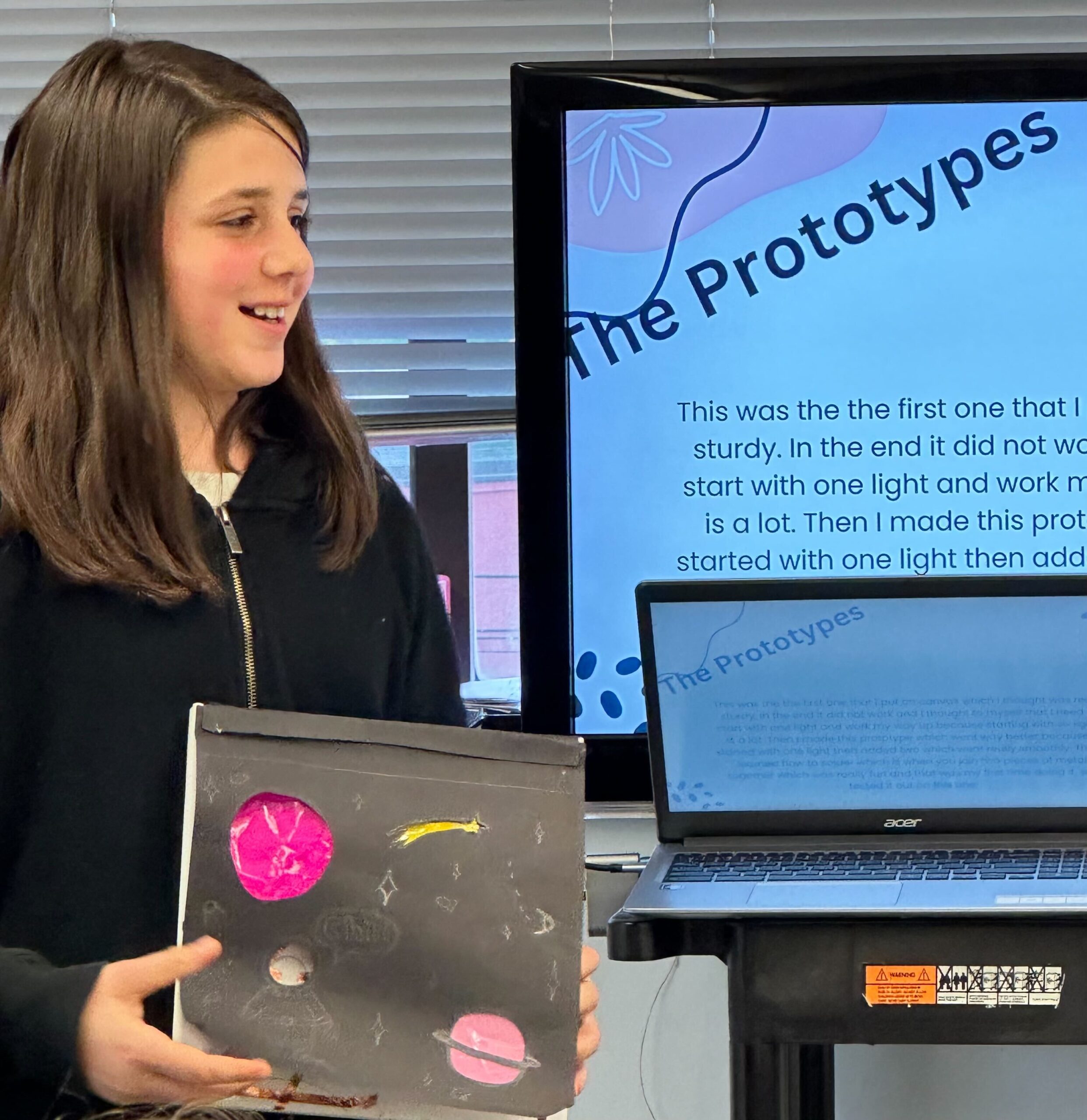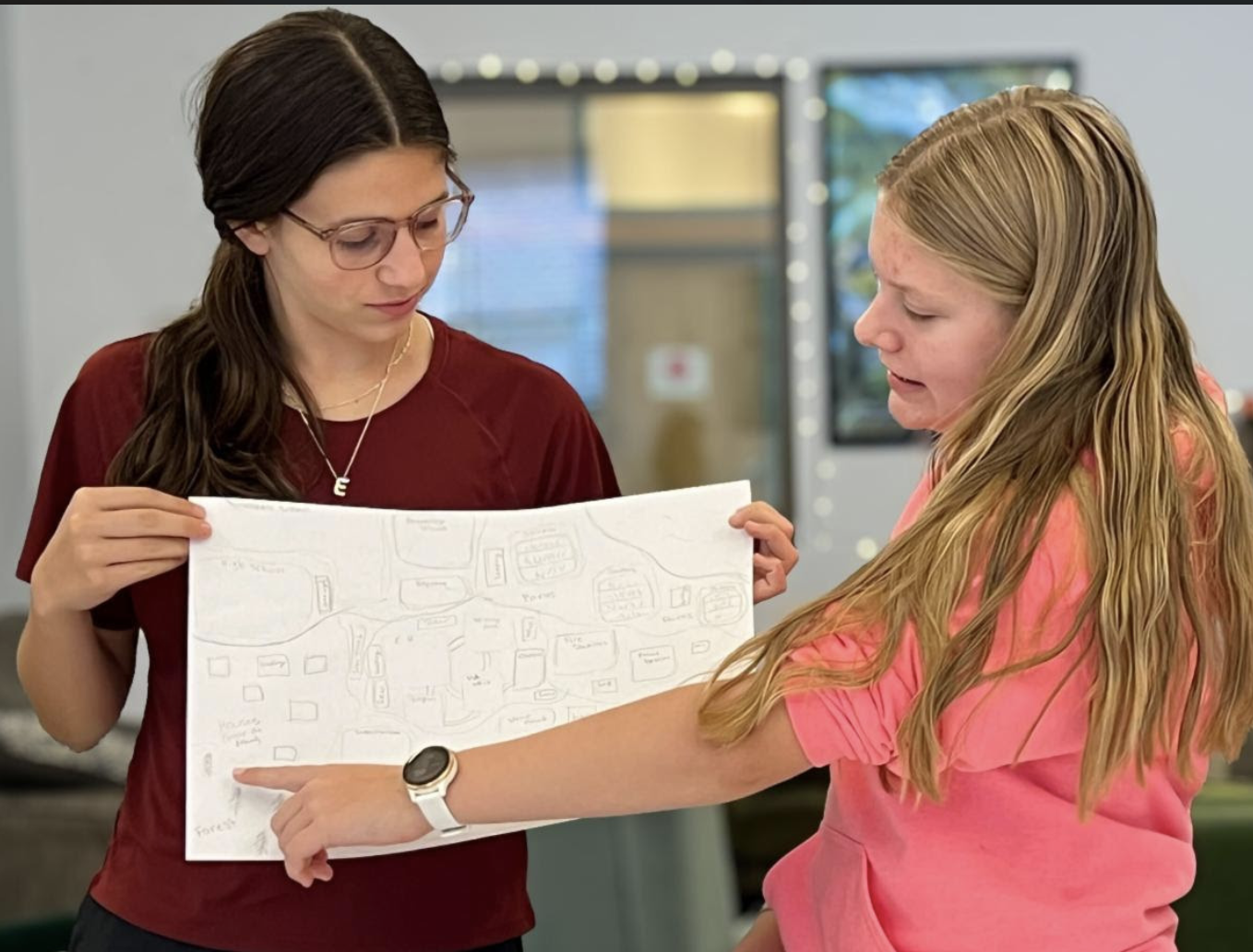In Ms. Camila’s Upper School Elective Perspective Drawing Skills class, students are learning to create…
Gifted girls hiding in plain sight

In Admissions Information Sessions, over and over I hear: My son really needs something different, but my daughter, the way public schools are, she is doing just fine where she is.
Yet, we know the odds are that if one child in a family needs gifted education services, they all do. So, what is this about? Gifted girls hide in plain sight. All the time.
There is surprisingly little research on this, but we do know that females hit puberty ahead of their same age male peers, and that social and emotional skills of most girls are considered to be about two years ahead of their counterparts. So often, girls’ giftedness includes their social skills; awash in empathy and perspective taking, they see the signs that others may not be ready for what they are ready for intellectually, and so they throttle back and wait.
Instead of asking the question and striving to reach or make the thing, they so often will step back to blend in. They will downplay their grades or achievements so as to not hurt their friends. For decades there has been awareness about the tension girls in particular feel – the pull between conformity and achievement. The wisdom in an older piece from the Davidson Institute about gifted girls still rings true on most fronts. Does this resonate with what you see, or experienced yourself while growing up?
Included inside the article from the Davidson Institute:
- “Gifted girls often face a range of social pressures in schools, causing them to shift priorities.”
- “In school, the desire for friends, a disinclination to stand out, fear of ridicule, along with the need for acceptance, often impel gifted girls to make their abilities appear ordinary or even nonexistent.”
Frequent features of gifted girls, which concur with deep intellectual curiosity, rapid application of ideas across subject areas and the drive to think in more complex ways, also include features that can cancel out many markers of giftedness, like:
- Purposely hold back because of a need to please others
- Acute sensitivity
- Heightened fear of failure
- Perfectionism, leading to anxiety
- Drive for friendships, and fitting in which can trod over curiosity to learn, express and grow
All of these features tend to heighten for girls around grades 5 and 6, a time of unique risk that a girl, when entering adolescence, can have plummeting confidence and lose a sense of themselves. Myriad reasons help explain this – but this age can often become a crossroads for a gifted girl. Conform and follow the path laid before you in a conventional way, or become yourself and live into your unique gifts, potential, and capacities for creativity and leadership? This unique moment of vulnerability is why we are excited when we do get to steward girls’ growth through all of middle school, helping her arrive ready for high school with enduring intrinsic motivation, a strong sense of self, and confidence to learn and act intact and flourishing.
In spite of this, we are far less likely to receive inquiries and applications for girls. (Remember that daughter who is doing “just fine” in public school?).
Our invitation to you? Help spread the word about Acera for girls! Share with others that gifted girls’ potential is less likely to be front and center due to their acute sensitivity and drive to conform.
In coming weeks, we hope to share profiles of girls whose growth trajectory led them to come and then stay at Acera through grade 8 – with myriad interests and paths! And we are planning a spring event for girls – Girls in STEM and Leadership – an event of engaging activities and women role models. If you know a girl who would enjoy some freedom in inquiry with other talented and curious girls one day this spring, invite them to visit!
Want to help with this event? Reach out to [email protected].
As you know, parents more often seek assessment and alternative programming for their gifted sons over their gifted daughters. Unique facets of girls make it less apparent that they need gifted education too.
A final thought from still-resonant Davidson Institute piece:
“For gifted girls, a sensitive, caring teacher may be all that stands between quiet resignation and the beginning of fulfillment of their potential.”
All the best,
Courtney
[image_with_animation image_url=”21211″ animation=”Fade In” hover_animation=”none” alignment=”” border_radius=”none” box_shadow=”none” image_loading=”default” max_width=”100%” max_width_mobile=”default”]
[divider line_type=”No Line”][text-with-icon icon_type=”font_icon” icon=”icon-list-alt” color=”Accent-Color”]Read “Gifted Girls” by The Davidson Institute[/text-with-icon][divider line_type=”No Line”][text-with-icon icon_type=”font_icon” icon=”icon-time” color=”Accent-Color”]View dates of upcoming Parent Information Sessions, and share with friends![/text-with-icon]
Courtney Dickinson is Acera’s Founder & Head of School.

